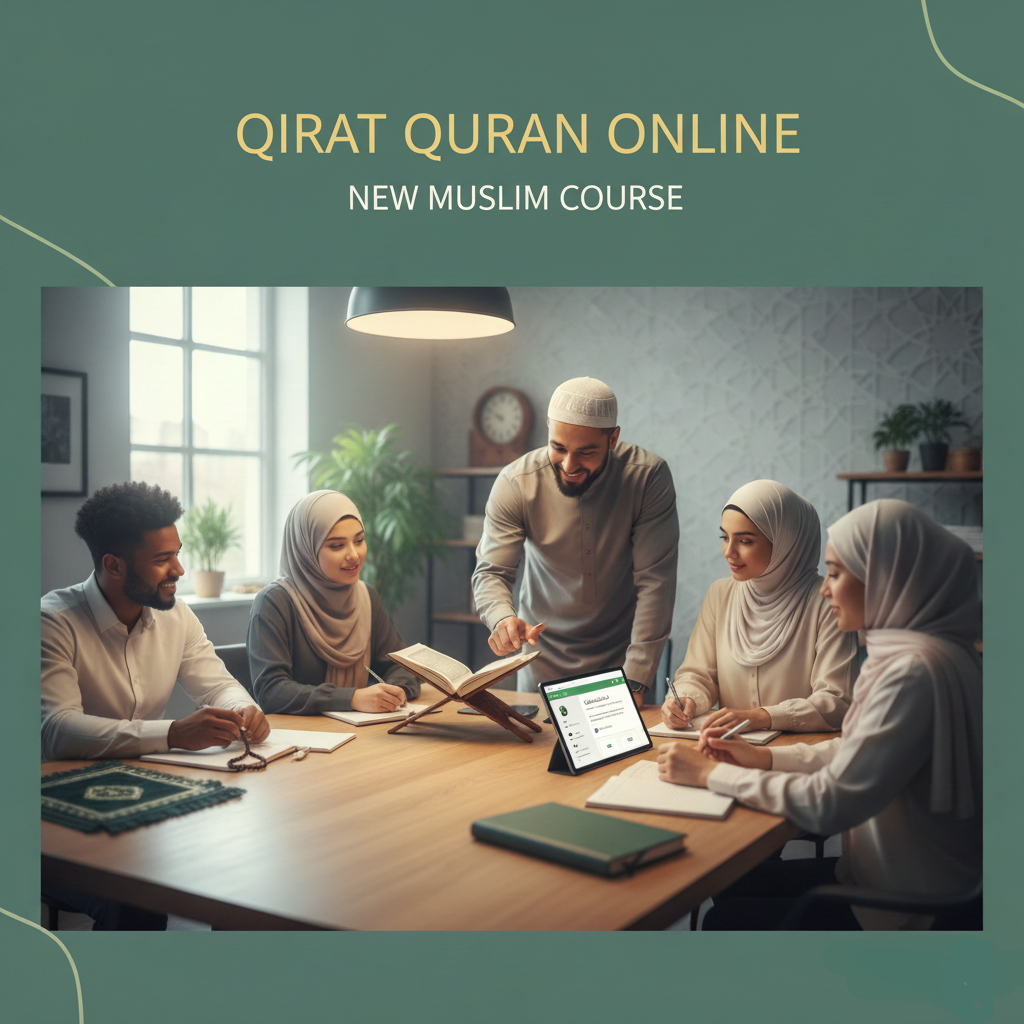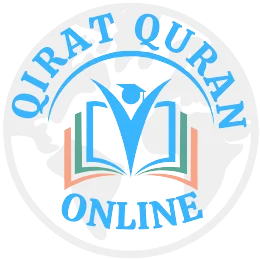
New Muslim Course
Empowering New Muslims course : Join Our Comprehensive Course!
Qirat Quran Online designed a New Muslim Course specifically to help people who have recently converted to Islam. This comprehensive program provides essential information, guidance and practical tools to help you as you navigate the wonderful journey of becoming a new Muslim.
You will explore basic Islamic principles such as prayer, fasting, the five pillars of faith, and more, through interactive classes, one-on-one guidance, and a welcoming learning environment. You will get to understand more about Islamic principles, values and the rich cultural heritage of the Muslim community.
Qirat Quran Online knowledgeable instructors will address the most common questions, concerns and challenges of recent converts to Islam, offering advice on a variety of topics related to daily life as devout Muslims. Additionally, you will meet other recent Muslim converts and build support for mutual growth.
Enroll in our new Islamic courses now to start transforming a lifestyle of power, knowledge and faith. Register immediately for the resources and support you need to succeed as a new Muslim and fully appreciate the beauty of Islam.
For recent converts to Islam—commonly referred to as “converts” or “converts”—the New Islamic course Curriculum is a high-quality, highly supervised educational program. Provides essential knowledge about Islam, helps us understand what it means to be a Muslim, the teachings of Islam, and the traditions associated with their new faith We will look at the foundations of Islam, explore what it means to be a Muslim, and discuss basic concepts of Islam.
Muslim Religion
Monotheistic Faith:
Islam, the name of the Muslim religion, is a monotheistic belief system. Muslims hold that God (Allah) is one and that He alone is the universe’s sole creator, sustainer, and ruler. Islamic theology is built on the notion of the absolute unity of God.
The Quran: The Holy Scripture:
The Quran, Islam’s holy book, is at the heart of the Muslim faith. Muslims consider the Quran to be a real revelation from God to the Prophet Muhammad over a 23-year period. It is the best source of direction for all elements of a Muslim’s life.
The Prophet Muhammad (Peace Be Upon Him):
The conviction in Muhammad’s prophethood is another tenet of the Muslim faith. He is regarded by Muslims as the last and final prophet, sent to teach Islam and lead humanity. His teachings and way of living, known as the Sunnah, offer a real-world illustration of how to live a moral and upright life in accordance with Islamic ideals.
What is Muslim?
A Follower of Islam:
A person who follows Islam is called a Muslim. As Muslims, you must declare that you believe in the Oneness of God, follow the teachings of the Qur’an, and strive to live your life according to the Sunnah, which is a collection of practices and customs followed by the Prophet Muhammad (Peace Be Upon Him).
Submission to God:
The word “Muslim” comes from the Arabic word “Islam,” which means “submission” or “surrender.” Being a Muslim entails recognizing God as the supreme authority and submitting one’s will to Him.
A Global Community:
The global Muslim community, or ummah, is composed of individuals from a wide range of racial, ethnic, and cultural origins. Despite their differences, they are united by their shared convictions and dedication to upholding the Islamic faith.
Muslim Beliefs
Belief in the Oneness of God:
The unwavering conviction in God’s perfect unity (Tawhid) is the cornerstone of Muslim doctrine. Muslims hold that God is one and that He has dominion over all of creation.
Belief in Prophets:
Muslims hold the prophetic authority and the divinely-inspired teachings of many prophets, including Jesus, Moses, Abraham, Noah, and Adam. Muhammad, however, is the last and most venerated prophet.
Belief in Angels:
Muslims consider angels to be real beings who were made by God to carry out His holy orders. For God’s selected prophets to receive His words, angels are essential.
Belief in Divine Books:
Muslims hold that the Torah, Psalms, Gospel, and, most significantly, the Quran are divine books that God revealed for the purpose of guiding humanity.
The New Muslim Course
A Path to Understanding:
An organized programme called The New Muslim Course provides information about Islam to those considering conversion. It covers important topics such Islamic ideology, traditions, and the fundamentals of worship.
Building a Solid Foundation:
The new Muslims course gives information and resources they need to build a strong foundation for their faith. It gives students the knowledge necessary to appreciate the nuances of the Muslim faith.
Support and Community:
In addition to learning, the new Muslim course curriculum tends to foster a sense of community and support. New converts with others who can build networks of shared believers who are on a similar journey.
Conclusion
A fundamental belief of Islam is monotheism, which is based on adherence to the teachings of the Prophet Muhammad, the belief that there is only one God, and submission to his will. A Muslim is one who accepts these ideas and tries to live by them as it is. A new Muslim curriculum is needed to help new converts navigate the complex religious dimension of Islam and to provide them with the knowledge and inspiration they need to begin practicing socially active Muslim. By learning more about Islamic principles, recent converts can develop a strong and lasting relationship with their religion and connect with the larger Muslim community.
Get A Free 3 Days Trial
FAQS:
Islamic studies courses encompass a wide range of topics, including Arabic language instruction, Islamic history, theology, Hadith, Quranic studies, and Islamic law.
The term “Islamic Studies” or simply “the study of Islam” is frequently used to describe the study of Islam and its activities.
The four primary Islamic legal schools, or Madhabs, are Hanafi, Maliki, Shafi’i, and Hanbali. These schools have an impact on Islamic law as well as religious practices
The purpose of Islamic studies is to gain a deeper understanding of Islam through its teachings, history, beliefs, and practices. It helps students learn about the Quran, Hadith, Fiqh, Islamic ethics, and the life of Prophet Muhammad (ﷺ). Islamic studies also guide individuals in developing strong moral values, spiritual growth, and a clear understanding of Islamic principles in daily life.
